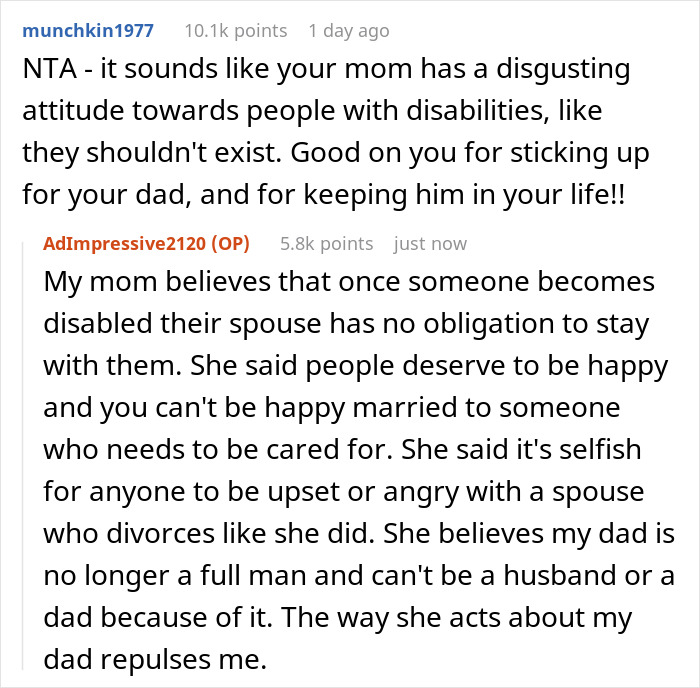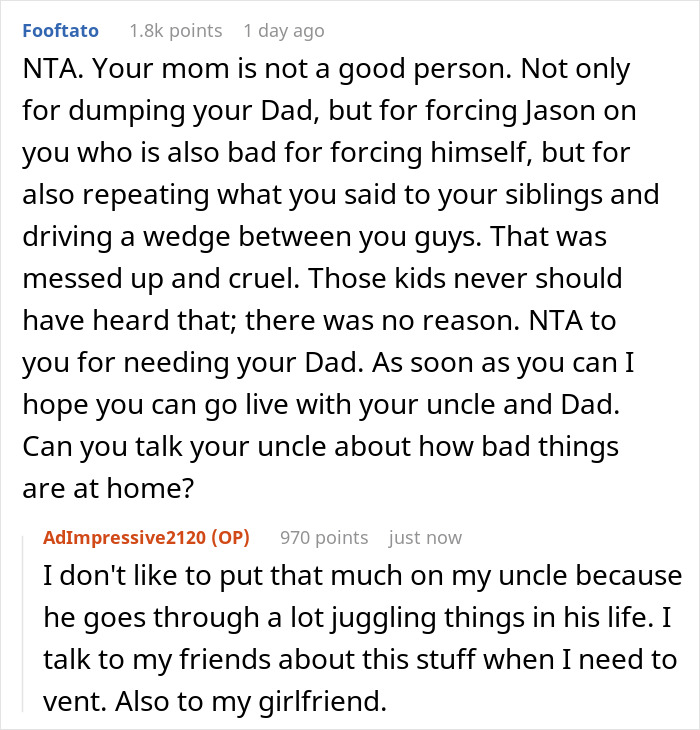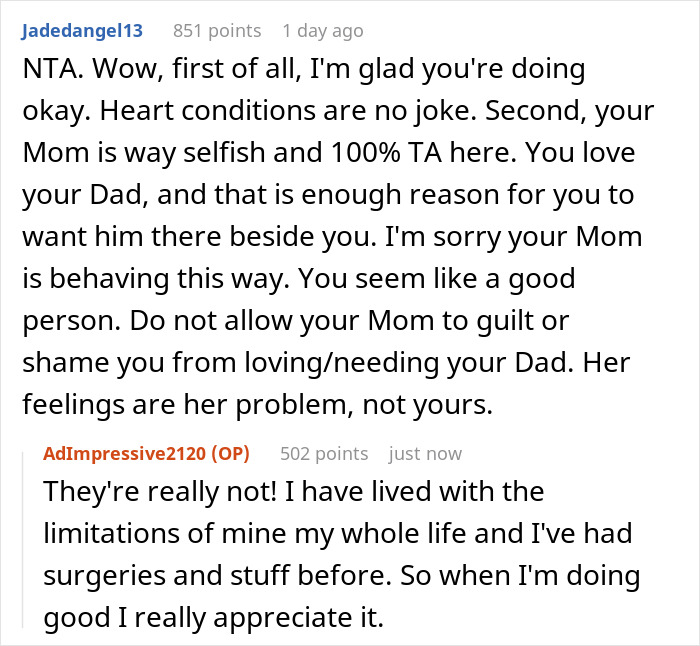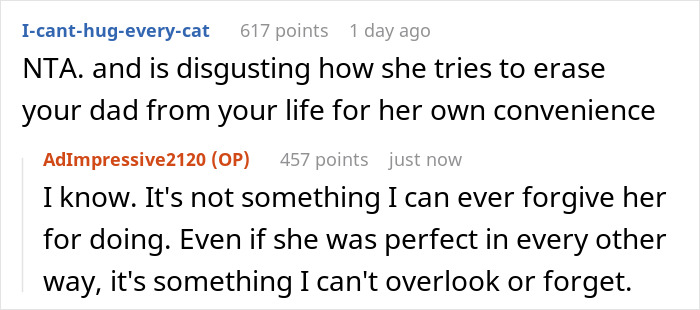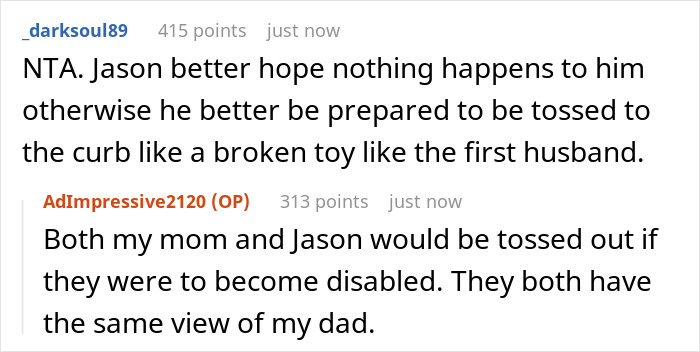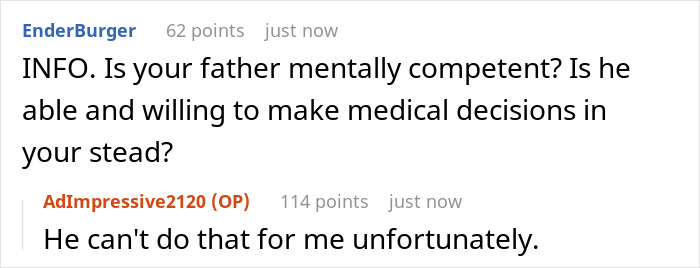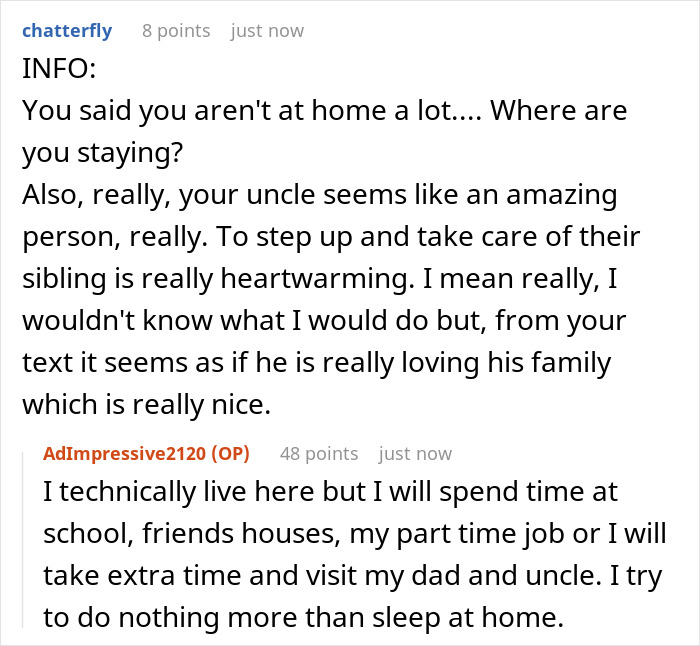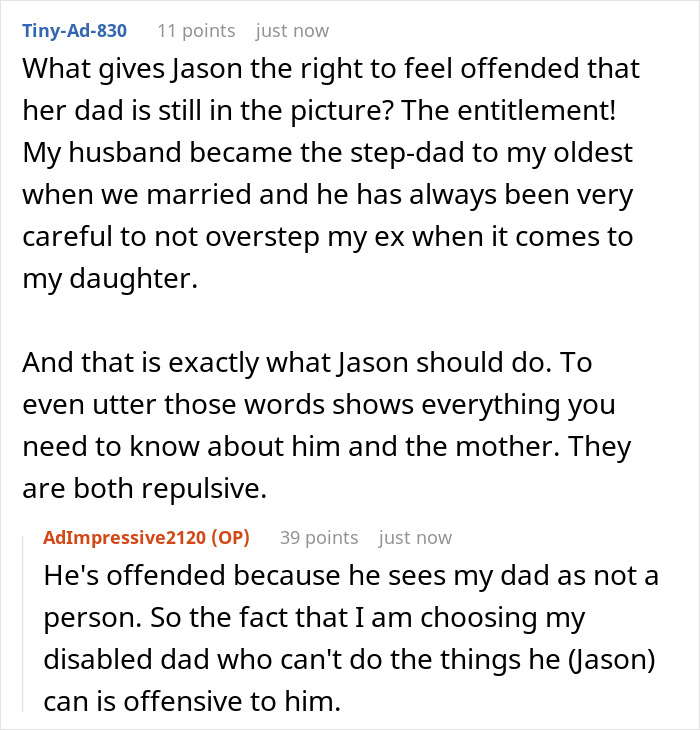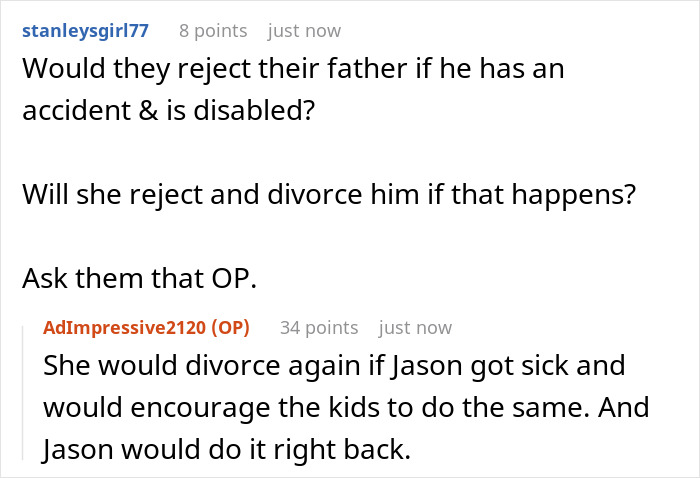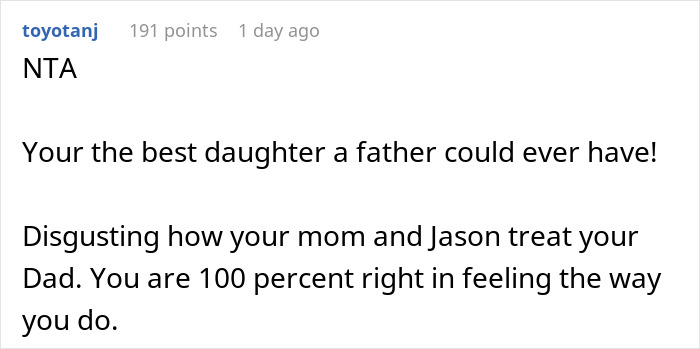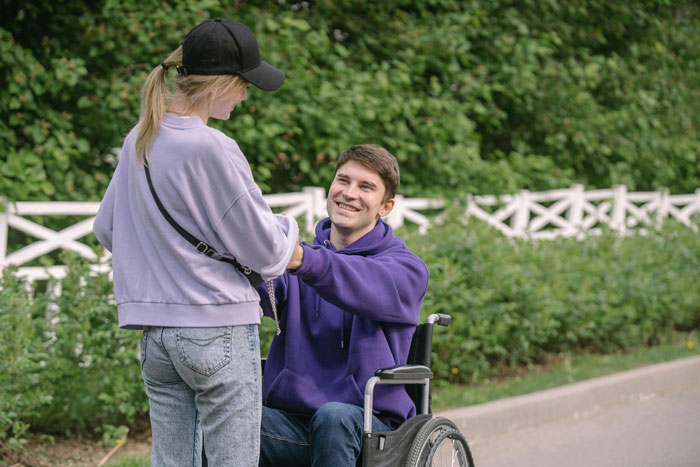Divorce can be a difficult experience for children, bringing up feelings of sadness, anger, confusion, and anxiety. It can create a complicated web of emotions for and feelings of loyalty towards an estranged parent.
This is exactly the situation this Redditor found herself in. After prioritizing her biological father over her stepfather and siblings, a fight with her mother left a bitter taste in their relationship.
More info: Reddit
The dad-daughter relationship can be a haven for unconditional love
Image credits: SHVETS production (not the actual photo)
This teenager found herself in a fight with her mom after she tried to deny her dad visitation access to her while sick
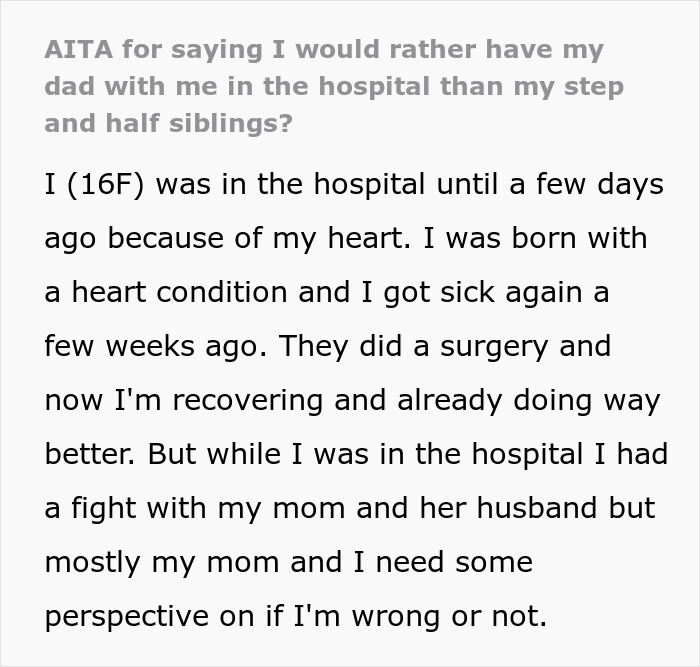
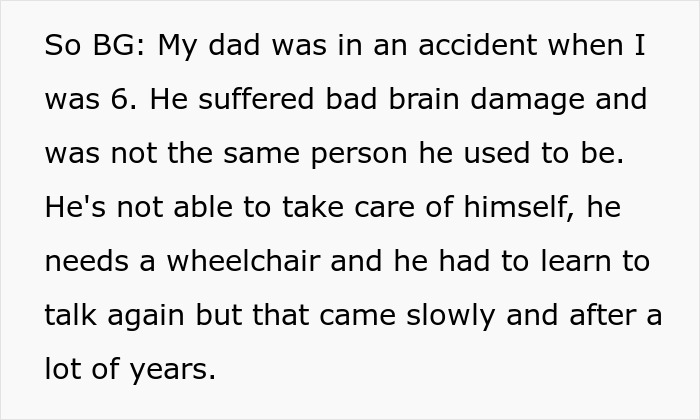
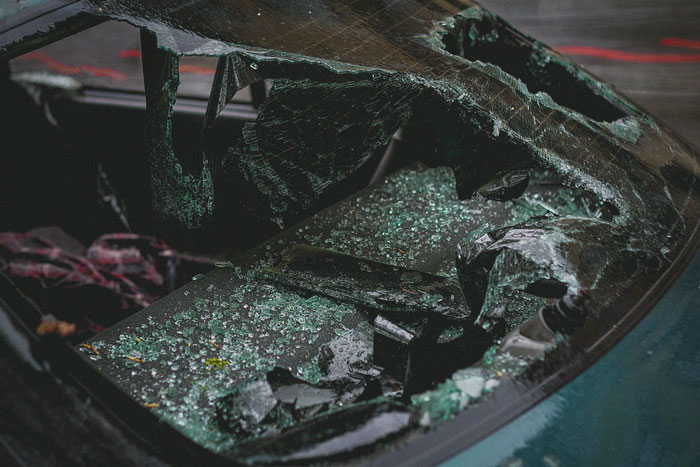
Image credits: Artyom Kulakov (not the actual photo)
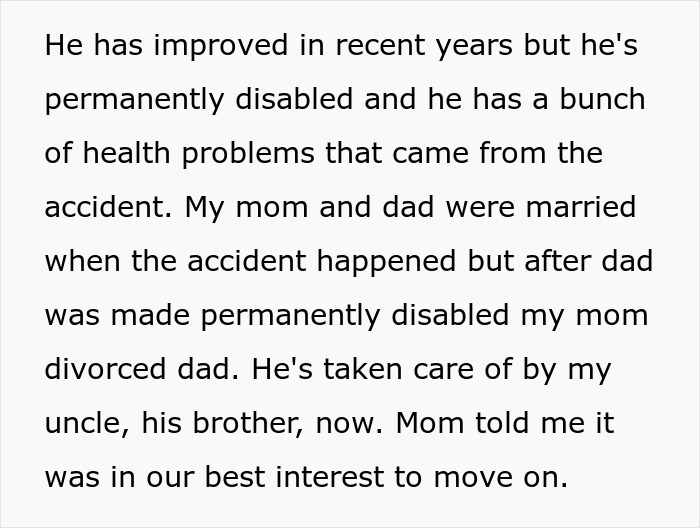
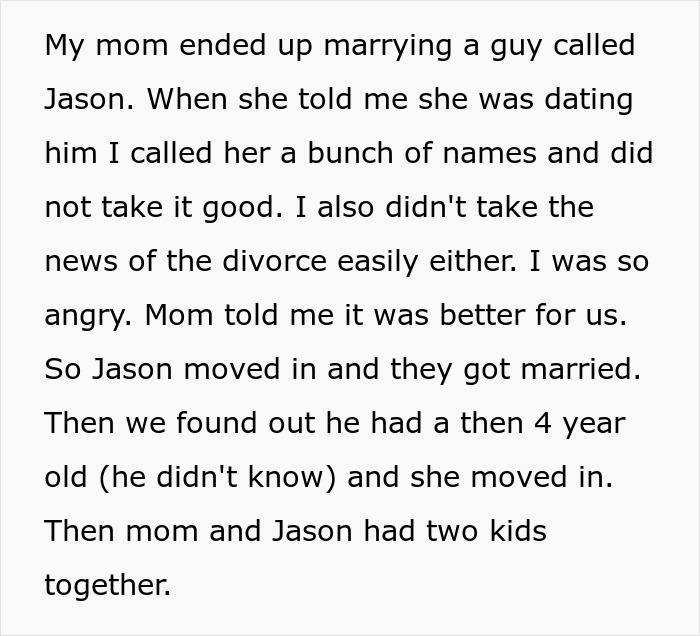
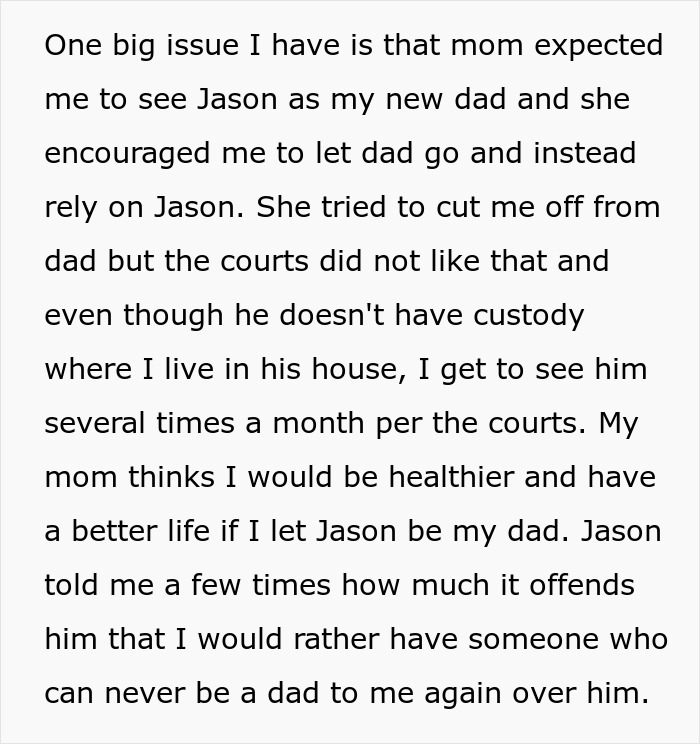

Image credits: Liza Summer (not the actual photo)
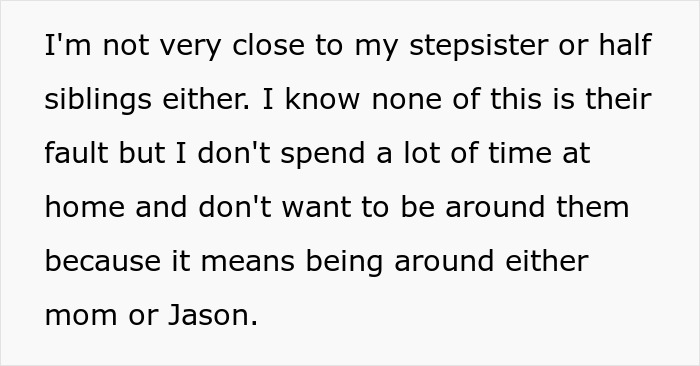
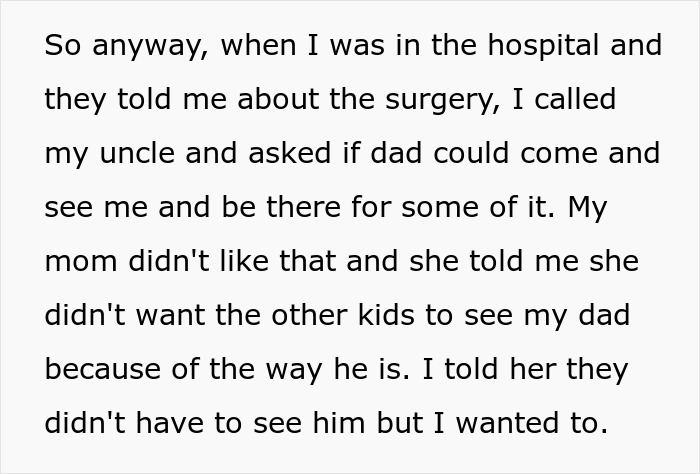
Image credits: RDNE Stock project (not the actual photo)
The poster needed to get a surgery and insisted that her dad come and see her, which her mother opposed
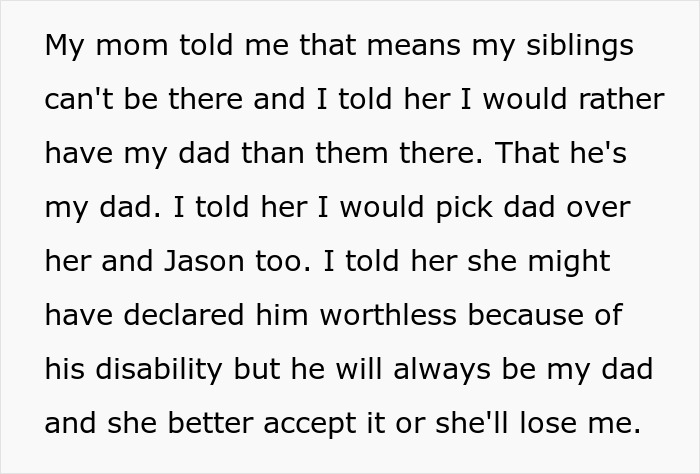
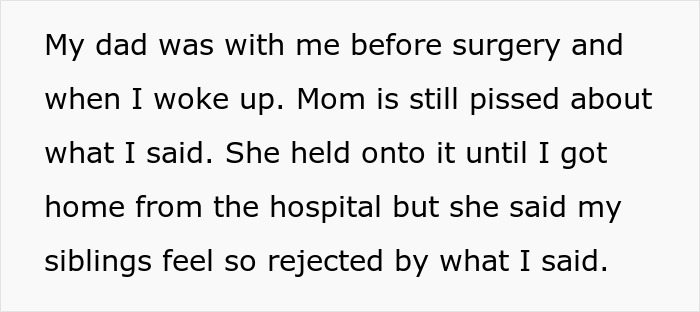

Image credits: AdImpressive2120
The teen told her mom that she would pick her dad over her and her stepdad, which infuriated her
The poster’s biological father suffered a debilitating accident when she was just six years old. The accident left him permanently disabled and requiring full-time care. Shortly after, her mother divorced him and remarried. The teen admits to struggling with both the divorce and accepting her stepfather, Jason.
While hospitalized for a heart condition, the teen requested her biological father be present for her surgery. This triggered a heated argument with her mother, who expressed concern about the impact his disability would have on her younger siblings. The situation escalated, with the teen choosing her biological father over her mother, stepfather, and siblings. The OP’s mother feels disrespected by the teen’s choice, while the younger siblings feel rejected.
Blended families like the one in the post can be rough because kids are forced to navigate a complex web of emotions – grief over the lost family unit, anger at the changes, and a struggle to define their place in this new dynamic. They might lash out at their step-parents, feeling disloyal to their biological parents, yet also frustrated by their new reality.
It’s a confusing time, and for the author, the friction at home is a way of clinging to the memories of her old life, unsure of how to fit into this new, unfamiliar one.
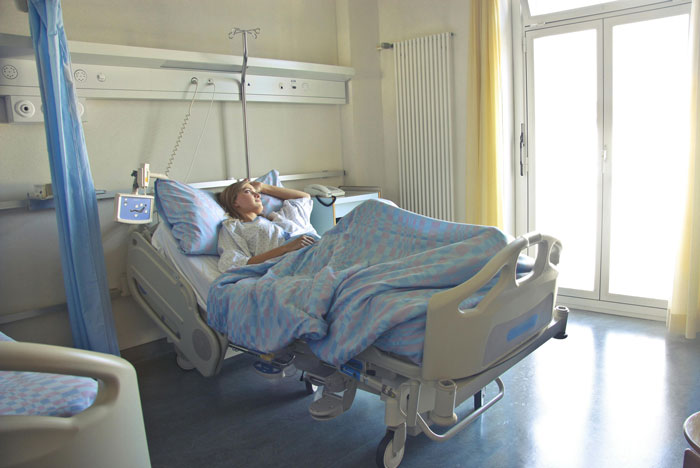
Image credits: Andrea Piacquadio (not the actual photo)
The OP likely feels a deep connection to her biological father, a bond built on history and shared experiences. His disability might even evoke a protectiveness in her. The poster’s mother’s viewpoint in the comments, where she suggests a spouse is no longer obligated to stay after a disability, throws a wrench into understanding the family dynamic.
While divorce is a personal decision, a parent leaving solely due to their partner’s disability presents a complex situation. It can signal to the child that love and commitment are conditional, and that a person’s value hinges on their physical abilities. This can have lasting consequences, potentially leading to feelings of insecurity, low self-esteem, and difficulty forming healthy attachments in the child’s future relationships.
Children are incredibly perceptive. Witnessing a parent seemingly prioritize convenience over compassion can be deeply confusing and emotionally damaging. It can breed distrust and make it difficult for the child to fully embrace new relationships, like the one with their stepfather. This, in turn, can contribute to the friction and resentment the poster mentions experiencing in her blended family.
Blended families are rough on kids because they have to adjust to a whole new dynamic, potentially feeling loyalty conflicts and navigating the complexities of grief, anger, and the desire for a “normal” family. “As you blend two families, differences in parenting, discipline, and lifestyle, for example, can create challenges and become a source of frustration for the children,” HelpGuide.org writes.
Having an “us against them” mentality is the best way to sabotage your attempts to blend your family or get along with your ex, said Prentiss Earl, a father of two who’s still close with his ex-wife and her new family, in an article for Huffpost. “I’d argue that our situation was more stressful when we maintained a separatist attitude with our individual households,” he noted. “I don’t feel family-related stress as much as I used to because of the way we’ve come together as a team.”
Anyway, what do you think? Is the poster wrong for prioritizing her biological father over her stepfather and siblings? Let’s know your thoughts in the comment below.
Commenters agreed she was not the jerk in this situation
